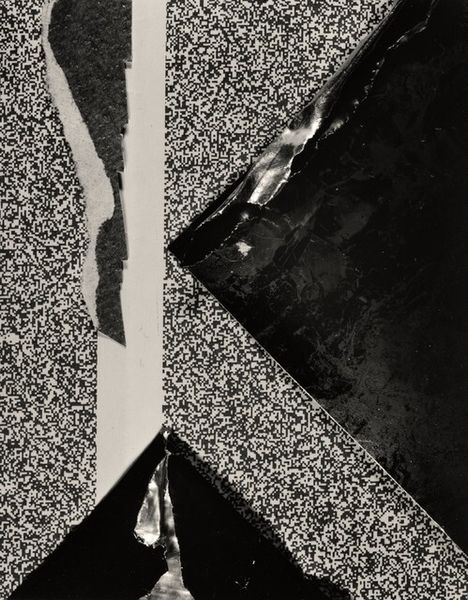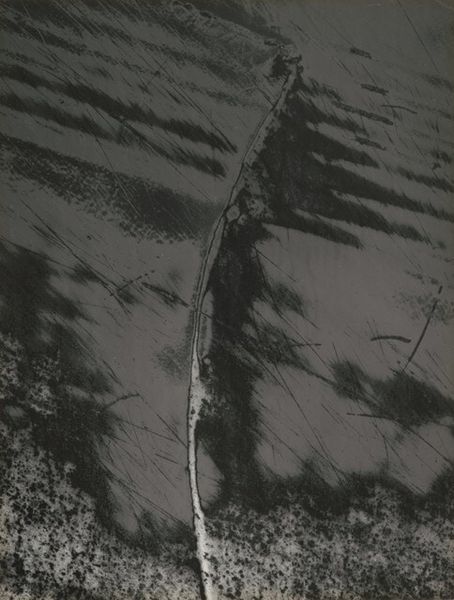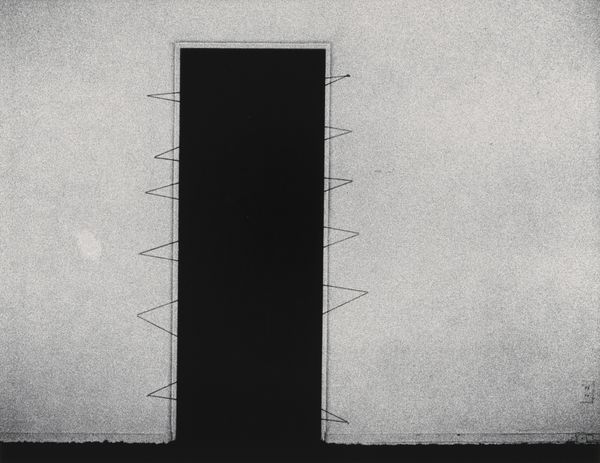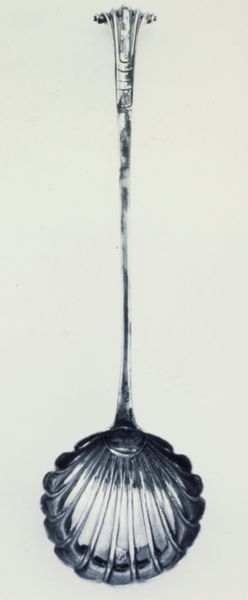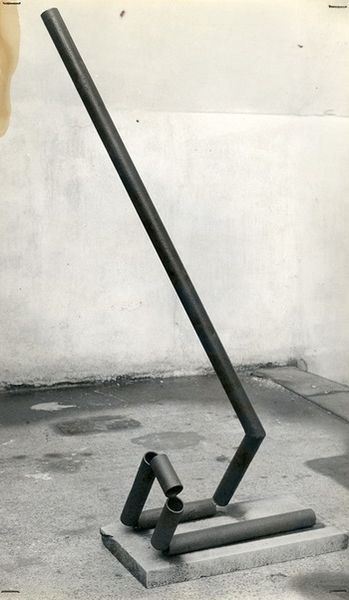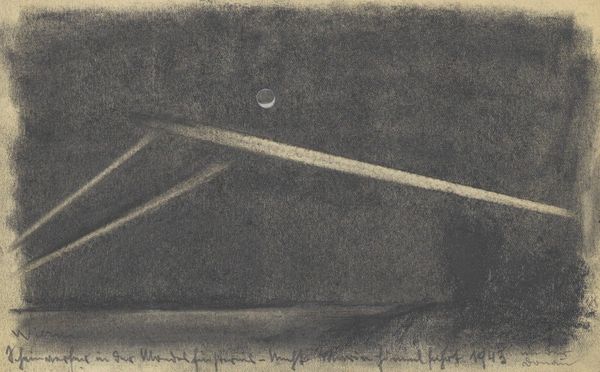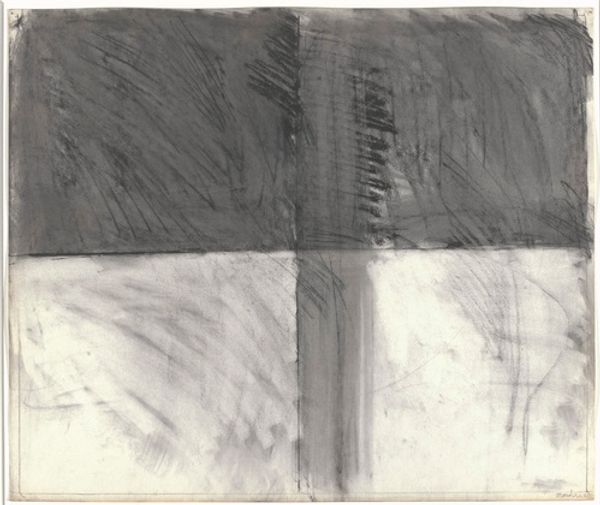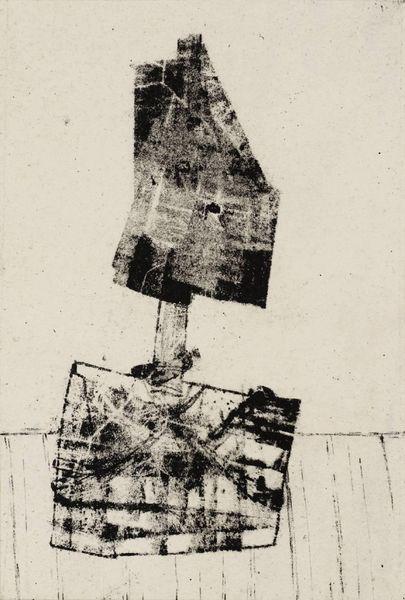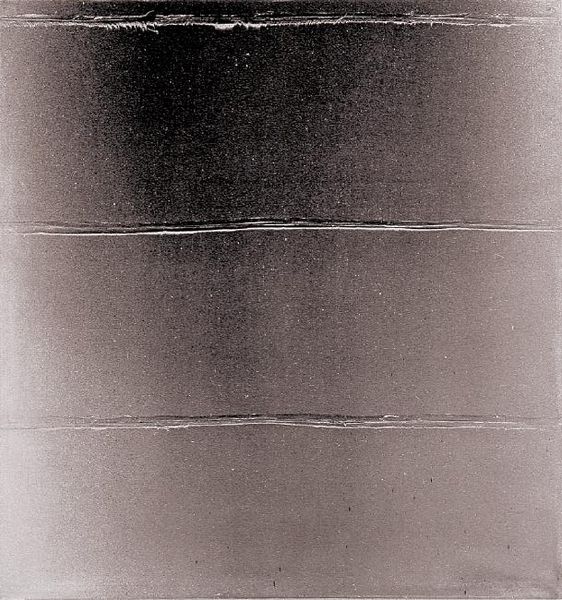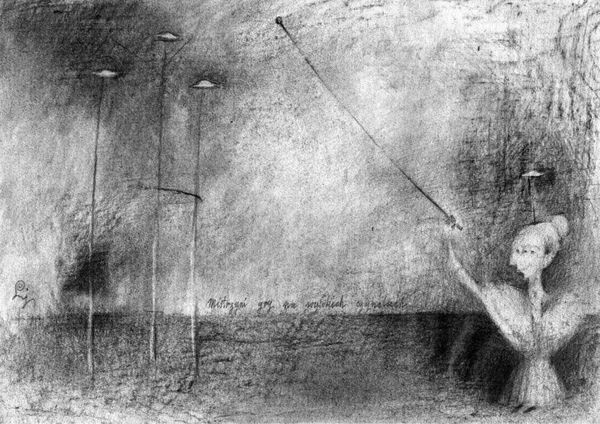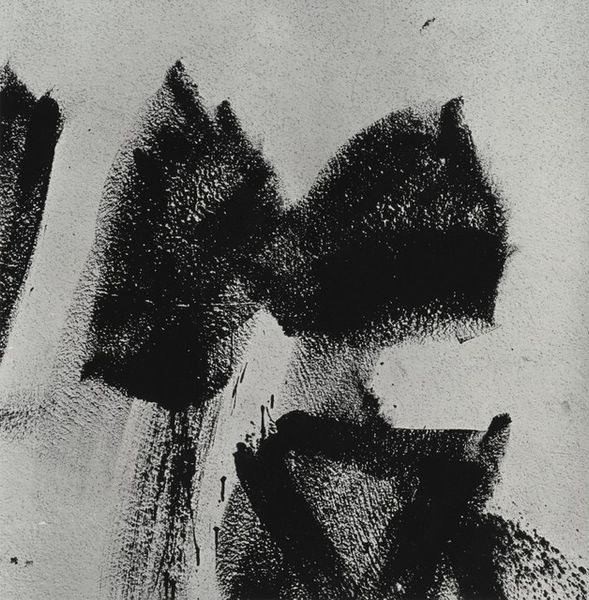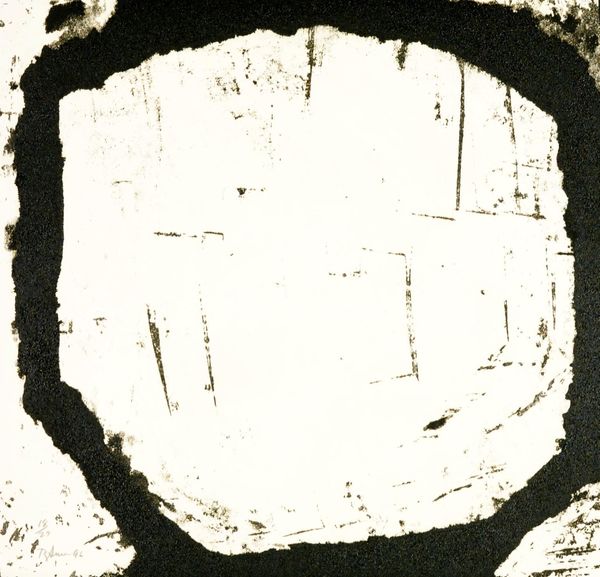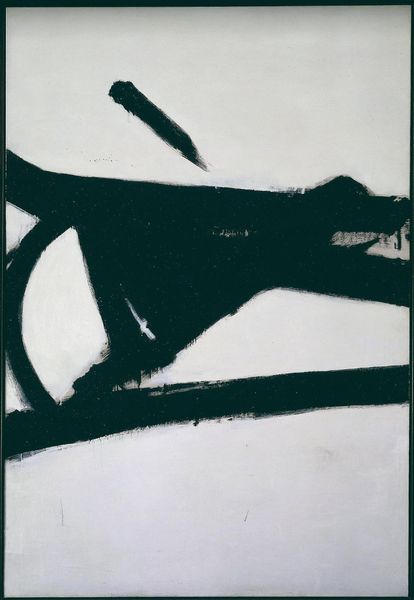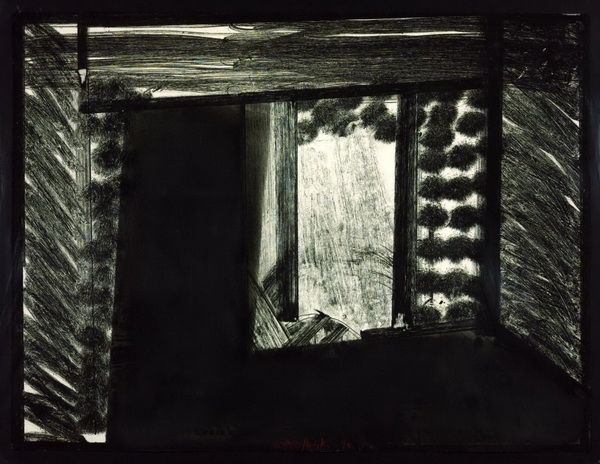
Dimensions: unconfirmed: 1524 x 1219 mm
Copyright: © Vik Muniz | CC-BY-NC-ND 4.0 DEED, Photo: Tate
Editor: Vik Muniz's "After Richard Serra, Prop, 1968," presents a striking visual arrangement. The simple composition of geometric forms creates a sense of precarious balance. What do you see in this piece? Curator: The photograph's power lies in its directness. We observe a plane, supported, it seems, by a single linear element. The textural contrasts are crucial. What effect does the surface quality of the plane have on your interpretation? Editor: It looks almost eroded, or aged, like a weathered surface. I wonder how that adds to the feeling of instability? Curator: Precisely. The imperfections introduce a tension. The formal interplay reveals a discourse on support, weight, and the very nature of representation itself. The photograph mediates, it does not present the real. Editor: It's fascinating how the stark composition allows us to consider those fundamental elements. Thank you! Curator: My pleasure. It's in such focused observation that we find deeper meaning.
Comments
No comments
Be the first to comment and join the conversation on the ultimate creative platform.
